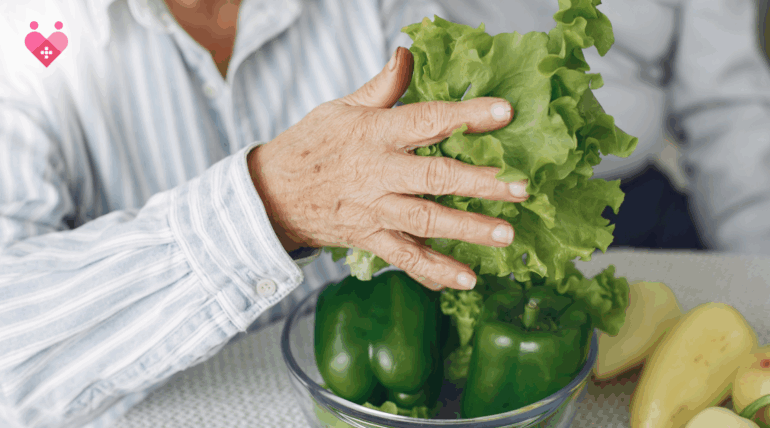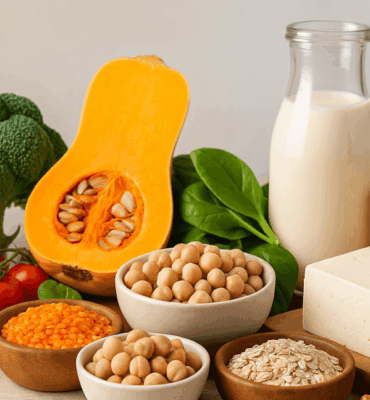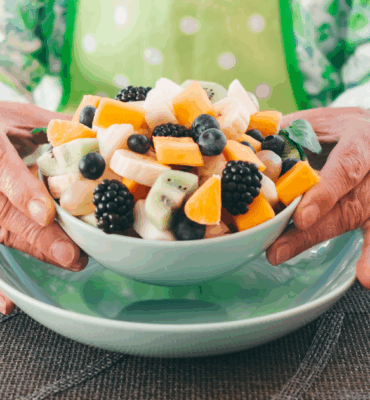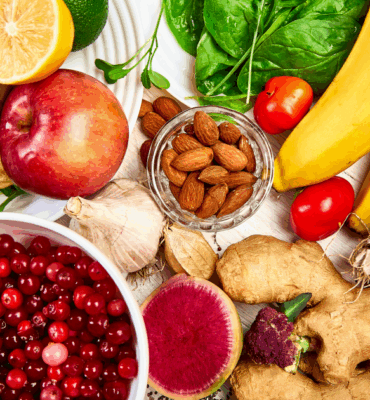
The body has different needs as it ages. Older people require more nutrients for an overall healthy condition and healthy aging. Healthy aging refers to staying active, social engagement, and feeding the body with proper nutrients. Nutrition is essential for elderly individuals. The nutritional needs of older people differ due to various physiological, mental, and emotional changes. Vitamins and minerals in older adults provide healthy aging, thus making the last years of their old age healthy. Healthy eating especially matters to the elderly.
Imagine your older parents start eating junk food. Would that not affect their health? It would. A healthy diet is crucial for older people to maintain health and wellness. A balanced diet for healthy aging is essential for older individuals since it promotes wellness and the management of diseases. The proper nutrients keep bone density intact, preserve muscle mass, boost the immune system, and benefit cognitive function. Neglecting nutritional needs can result in fatigue, increased susceptibility to illness, and a degradation of physical and mental condition. Below is a senior nutrition guide that will help you make the right food choices to put in an elderly diet.
Moreover, this article will also include healthy diet tips for aging adults. Suppose your older parents suffer from specific conditions like diabetes but cannot stop themselves from indulging in sweets. In that case, knowing how to encourage healthy eating for seniors can make a difference. The key nutrients for healthy aging are essential to complete wellness and active living, keeping ailments at bay. Read more to know what the best foods for senior health are.

Key Nutrients for Healthy Aging
The key nutrients should ideally be incorporated into a balanced diet for healthy aging. Healthy eating for seniors is essential. Since older individuals suffer from health issues, staying fit and active through a well-balanced diet is crucial. Nutrition plays a major role in elderly care. The following are some nutrients that are critical to senior individuals. You can also consult your elderly loved ones’ medical professional to know more about what supplements they should take. However, it would be best if you didn’t administer any supplement without proper consultation with a doctor:
- Calcium and Vitamin D
Calcium and Vitamin D are nutrients for healthy bones and teeth. Older adults are more likely to break bones and lose bone density. A good diet for healthy bones and teeth would be rich in calcium from sources such as dairy products, fortified plant-based milk, and leafy greens. Meanwhile, Vitamin D from sources like fatty fish, egg yolks, and sun exposure allows the body to absorb calcium well. Both nutrients are vital to preventing osteoporosis and maintaining the skeletal system’s health.
- Protein
Protein aids in maintaining muscle mass, repairing tissues, boosting immunity, and keeping the body fit and active. Old people must include lean meats, eggs, legumes, nuts, seeds, and plant proteins like tofu in their diets. In order to achieve maximum results, it is always better to divide the protein intake equally between breakfast, lunch, and dinner so that the body will have continuous supplies for repair and maintenance. Moreover, to ensure your elderly parents have a balanced diet, you can also employ a medical attendant to help them take their nutrients.
- Omega-3 Fatty Acids
Omega-3 fatty acids help decrease inflammation, support cardiovascular health, and protect brain function. Because elderly people suffer from illnesses affecting the body and the brain, they need to include omega-3 fatty acids in their diet to maintain an active and sharp lifestyle. Some excellent sources of omega-3 fatty acids are fatty fish such as salmon and mackerel and nuts like chia seeds, flaxseeds, and walnuts.
- Fiber
Older adults need high fiber, essential for maintaining gut health, preventing constipation, and managing blood sugar and cholesterol levels. They can achieve high fiber intake by introducing whole grains, fruits such as apples and berries, leafy green vegetables, lentils, and chickpeas. Hydration is equally essential, along with a fiber-rich diet.
- Vitamin B12
Vitamin B12 is crucial for maintaining energy, promoting healthy brain functioning, and resulting in healthy blood cells. Natural sources include meat, fish, eggs, and dairy. Alternatives exist for those with restricted diets: fortified cereals and plant-based milks. Because B12 assimilation within the human body decreases with age, many seniors require supplements or fortified foods to maintain their nutritional levels without experiencing deficiency traits that may cause fatigue or memory problems. However, before resorting to supplements, consult your elderly parent’s doctor for approval. Furthermore, since vitamin B12 deficiency can affect physical and mental functioning, employing a home care wellness manager can be helpful to ensure better living.
- Potassium
Potassium is crucial for regulating blood pressure, muscle function, and heart and kidney health. Older adults may have cardiovascular diseases and chronic kidney diseases during their old age, so it is essential for their health. Seniors must take bananas, potatoes, spinach, and beans daily to achieve the required potassium.
- Antioxidants
Antioxidants are strong chemicals that fight stress, improve the immune system, and safeguard skin health. They are essential for healthy aging. Fruits and vegetables that are rich in color, such as citrus fruits such as oranges, berries, capsicum, and spinach, are good sources of antioxidants. From these food items, older individuals can receive Vitamin C and E. Antioxidants increase nutrient intake and help older individuals fight diseases, remove toxins, and remain healthy.
- Magnesium
Magnesium is an all-around mineral that promotes proper muscle and nerve functioning, maintains blood sugar levels, and contributes to bone health. Seniors can take in magnesium through nuts, seeds, whole grains, beans, fish, and avocados. A well-balanced diet in terms of magnesium lowers the chance of experiencing muscle cramps, fatigue, and even heart-related diseases.
- Zinc
Zinc is a vital mineral that boosts the immune system, helps in wound healing, and preserves the ability to taste and smell. Zinc-rich foods include lean meat, shellfish like crab, legumes, nuts, seeds, and whole grains. Including these food items in meals ensures seniors will ward off infections, reduce recovery time from illnesses, and live a healthy and long life.





